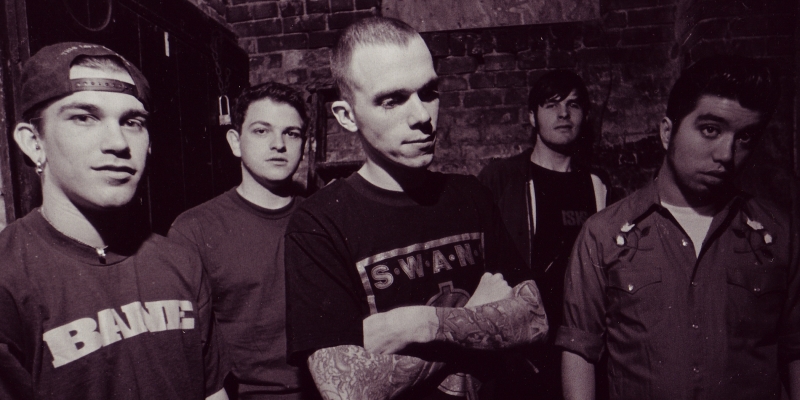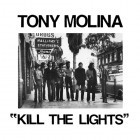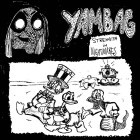
There seems to be some ping-ponging discourse of late on whether Jane Doe is Converge’s best album, is influential or, gasp, even good at all. Let me assure you that if any of the above applies to you, you’re dumb as hell. The oversaturation of the ol’ girl’s mean mug as back patch, as shirt, as tattoo, as flag, as cup, as pin (on and on) or as the band’s mainstay logo (bar the shield or sunman) may qualify it as overrated to a bristling few, but don’t be vexed, Converge’s fourth album is every bit the genre landmark you’ve heard.
"Why the fuck are you writing this now, Bruce?" I’m sure some may be musing of this article’s timeliness, or lack thereof. Truth be told, I had planned to have this well and done last Fall, around the album’s eighteenth birthday, when the ol’ girl would be off to college, hence my ever creative, Descendents-spoofing title. Perhaps ironically, my own, also better-late-than-never college experience delayed that serendipitous publishing, so here we are, celebrating Jane Doe at this awkward time some 18 months before the big 20. But punctuality be damned, this album requires no milestone to be lavished with paragraphs’ worth of praise.

The objective approach is assessing Jane Doe as the pivot around which Converge transformed from chaotic metalcore to experimental metal. A further argument can be made that its arrival left a lasting, influential mark on heavy music at large, which it certainly did. As much a culmination of accomplishments as it was a seed for unprecedented growth, everything in their 30 year discography leads to and springs from this one release.
The subsequent five post-2001 albums are luxuriant productions boasting a feast for the ears, but my preference is for the raw energy that made everything up to and including Jane Doe unbridled and special. Some may view its arrival point on the timeline as where Converge became a different band entirely (valid), with their lineup remaining unchanged since, but you can’t deny the seismic shift that followed.
I’ll leave you to your own devices when it comes to deciding the album’s critical merit, but anything short of praise renders you, as stated above, dumb as hell. I’m not here to ramble about its many technical merits, or that aforementioned pivot, though they are factors in my praise. I’m here to ramble about why I love Jane Doe, and I will gush with all affectionate cylinders firing. Once described by one of my peers as the breakup album to end all breakup albums, the album chronicles the mental wreckage left in the wake of a failed relationship. There is pain and catharsis bleeding into every second of the album’s 45 minutes: Jane Doe is as much something to be felt as it is heard.
My 20s, much like anyone’s, was an unnavigable gauntlet of heartbreak and depression, and Jane Doe, with its naked rage and poetic sorrow, played a large part in me sticking around. Ah yes, the cliched ‘your music saved my life’ bit. I hate to see it too, trust me, but coming out and finding subsequent love can just plain fucking suck. So those slices of art, that I know you all cling to, will always have their emotional value. Converge’s discography, and this particular album, are just that valuable to me, and many others I’ve learned, just Google "Converge Jane Doe tattoo." Shrug, even my own tattoo was done in the aftermath of a gnarly breakup. Mark of the broken heart.

So in navigating this gauntlet, with its failures, loneliness and breakups at every turn, Jane Doe served as the perfect rocky road map.
The first (favorite) stop is the frantic “Concubine,” a song that's like washing your face with diamond sandpaper, a song so initially abrasive, that I’ve yet to hear anything as intense. Imagine coming off the already wrathful When Forever Comes Crashing into this envelope-pushing opener; unreal. This live set mainstay restrains itself long enough to dive headlong into toe-tapping distorted groove before resuming its hyper siege that blasts into its inseparable counterpart “Fault and Fracture.”
Schizophrenic time signatures abound, this second track swells, bursts and remakes itself over and over, with each new form as terrifying as the last. The fluttering intermission at 1:07 explodes into a barrage of drum fills that gradually escalate into a frenetic, blink-and-you’ll-miss-it climax.
Musically, “Hell to Pay,” with its plodding tempo and doldrum temperament, is my least favorite track, but where Jacob Bannon’s lyrics are concerned, it may be the album’s best. As functioning poetry, Bannon hasn’t come this close to raw pathos since No Heroes’ “Orphaned.” I recall sitting in my furnitureless one-bedroom apartment, me in a dark place verging on tears, tracing the lyrics on the record sleeve by the light of my TV. Over and over, like a mantra, reading “And I think he pulled that trigger to empty that memory / I think he cut the weight to end the floods of you / Let him soar, let him ride as budding gravestones do / Just sleep, girl, just dream well.” It’s a bittersweet memory that endeared Converge to me for years since.

In slightly lighter fair, we have “The Broken Vow,” Converge’s most hardcore track on an album already leaning into post-metal. On the collaborative Axe to Fall or the overindulgent All We Love We Leave Behind, it’d be (slightly out of place, but here, on the heels of their exit from being a strict metalcore band, “The Broken Vow” feels like the swansong answer to “Love As Arson’s” gang-chanted conviction. The old energy is wrapped in their newfound technicality, as the proceedings shift from wavering melodies into roaring cacophony. Bannon and cohorts issue alternating calls to arms, before the wall of guitars collapse into show-stopping chuggery. It's the hardest moment in any Converge song, I swear.
Here they affirm their career-spanning motif as “I’ll take my love to the grave” is roared with triumphant repetition until the closing note:
“Heaven in Her Arms” is rife with despairing melody (and a sawtoothed purr of a bass), with its chorus anxiously racing towards an impending doom lingering on the horizon. The almost completely instrumental “Phoenix in Flight '' opens Jane Doe to haunting vistas that the title track will revisit in intimate detail later. A funereal chant cries over the toppling guitars, building towards a gathering finale in a manner not dissimilar to “Fault and Fracture” and “Jane Doe.”
The song’s counterpart, the comparatively caustic “Phoenix in Flames,” is a vocal-and-drum only blitz of snarls and gunfire. Together they serve as a forward to “Thaw” which is itself the prologue to the monstrous, arresting title track. The transference from beauty to ugliness, from flight to flame, from freeze to thaw, becomes the foundation on which Converge builds Jane Doe’s finale. These warring ingredients are woven into a track so flawlessly rendered, Converge could’ve contently never written another song.
“Jane Doe” is my favorite Converge song, a masterpiece within a masterpiece awe-inspiring in its scale and complexity. It dedicates its first seven minutes to a mid-tempo coda, working evocative chants, towering riffs, swirling melodies, resounding fills and even mosh parts into its spacious frame. Unlike the finales that tracks like “Fault and Fracture” surge toward, Converge take their time here, parsing each successive piece in the climax with ever-loosening restraint.
It’s when things get quiet, when the song holds a pre-suicide vigil for itself, that the chills begin crawling up my spine. Bannon murmurs like a lost ghost. Koller taps along like a heartbeat before a final gasp. Ballou plays with a rare quiet. Then, like a thunderclap, like all light being extinguished at once, as if the stars all died in unison, everything just comes down. It’s the single greatest moment in any song I’ve yet heard, the climax to end all climaxes. Bannon funnels immeasurable pain into his screams. The guitars alternate between despair and hope before settling on the former. Newton’s bass rumbles forlorn beneath it all. Koller carries the ending with urgency, with each bombastic snare hit a step closer to an abyss. Converge’s finest moment, truly.
During one rather vivid listening of this dirge, I envisioned someone hanging themselves to this song a million miles in the sky, on a rope just as long. As they plunged, their life raced past them in a montage of memories and clouds, both getting greyer with the descent. As “Jane Doe” would reach its quietest interlude the realization of the suicide would set in, with indifference and acceptance following as the finale crescended. They would fall as far past the song’s fade out would allow, just an image of a flailing noose, eyes closed with contentment, hurdling earthbound like a meteor through a sea of mist. A bleak image invoked by painterly songwriting, if you can or care to envision it, that is.
Putting all this album has meant to me to digital paper was an unexpectedly draining task. If you’ve stayed to this point, I owe you a customary ‘thanks for reading.’ Arguably, every album means something to someone, and it is with certainty that I can say Jane Doe is important to many.
As we near the ol’ girl’s 20th Anniversary next year, before the influx of features highlighting the album’s technical merits, let’s pause to dwell on the album’s real power.
Tagged: converge




















